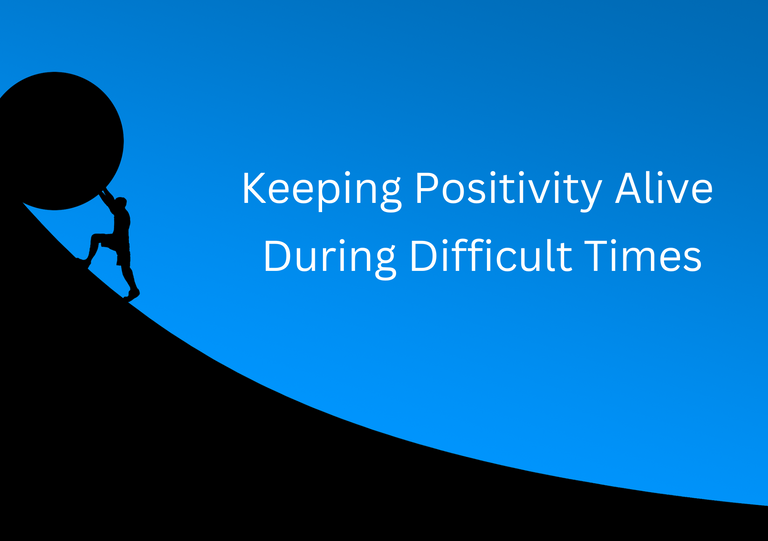Things get harder during difficult times. So you must make significant efforts to stay positive in your personal and professional life. Not only will you make others happy, but you will also feel better as well.
The way people define success today won't ease a growing population of frustrated people mired in depression, anxiety, addiction recovery, and numbing chronic pain.
It is good to have your positivity meter checked during months of bad news because it can help you get through the most difficult times right now. It's not an easy task, but you're never alone.
Be yourself and embrace creativity
Being yourself is one of the best ways to stay positive in times that could break you. Surrounding yourself with creative minds helps too. Creativity is great for tough times and it activates your brain which lifts your spirits soon enough. Sometimes, just seeing some inspiring quotes on social media platforms can work just enough for the time being!
Do not embrace depression
The point is to see the silver lining. No matter how tough life gets and how many obstacles we run into, there is always some way of finding a light at the end of the tunnel.
It is hard not to get caught up in our feelings that don't match where we think we should be. But that involves getting in touch with your thoughts and emotions to recognize 'depression' for the phenomenon it really is - defense mechanisms against change or self-consciousness about our mistakes or lack.
Our thought processes are powerful reins on our emotional states, and this goes for when good things happen as well as bad ones. Digging deep and looking a little closer can help us find that inner strength we need to make it through these harder times. The key is knowing when it’s actually depression and discovering what deeper drivers lie beneath it!
Positivity protects you from mental struggles
If a life goal is to be successful and healthy, positivity has a crucial place in life. It has an intrinsic self-regulatory effect that protects people from mental fragility when they struggle with challenges.
In his book "Zen Mind, Beginner's Mind", Shunryu Suzuki says that he follows the rule of keeping “a beginner’s mind” which involves observing nature and life with a sense of wonder, unpolluted by thoughts of gain or loss.
This is only possible for two reasons - firstly, we need to seize the opportunity to take the time out for ourselves, and secondly, it is necessary to let go of judgments around what other people think about us or our decisions - especially those thoughts that pervade our brains without any basis.
Guard against perfectionism
The importance of keeping positivity alive during difficult times doesn't always avoid us from facing disappointment. The key is how to face them in order not to fall into damaging mindsets such as perfectionism. Perfectionism is an unhealthy mindset related to the need for excellence in all things, which causes anxiety and self-doubt. It's a kind of mental trap that leads to seeking constant affirmation and validation. This, in turn, leads to a downward spiral where we put unrealistic expectations on ourselves and others leading to disappointment rather than success!
Improving mental wealth being
According to one study, the effects of mental illness vary massively depending on the level of social support provided. But all living beings have five domains that they need to be happy:
• A sense of belonging,
• A sense of control,
• A sense good self-concepts,
• A sense meaningful activity, and
• A sense of positive outlooks.
Attending these five areas can improve mental well-being and enable someone to come out through difficulty or a difficult situation.
Try living in the moment and expressing gratitude
The best way to cultivate positivity no matter what may be going on around you is to live in the present moment. Being aware of your emotions, staying inside your sensory capabilities, and being grateful for what you have and those who follow with you on life's journey.
A set of practices will cultivate a more positive mindset and increase your ability to regulate strong negative emotions – this includes practicing Gratitude in whatever form- writing a thank-you note, thinking about three things for which we are grateful for at night before bed (those happenings do not need to be material things or people), deep breathing, and self-care.
